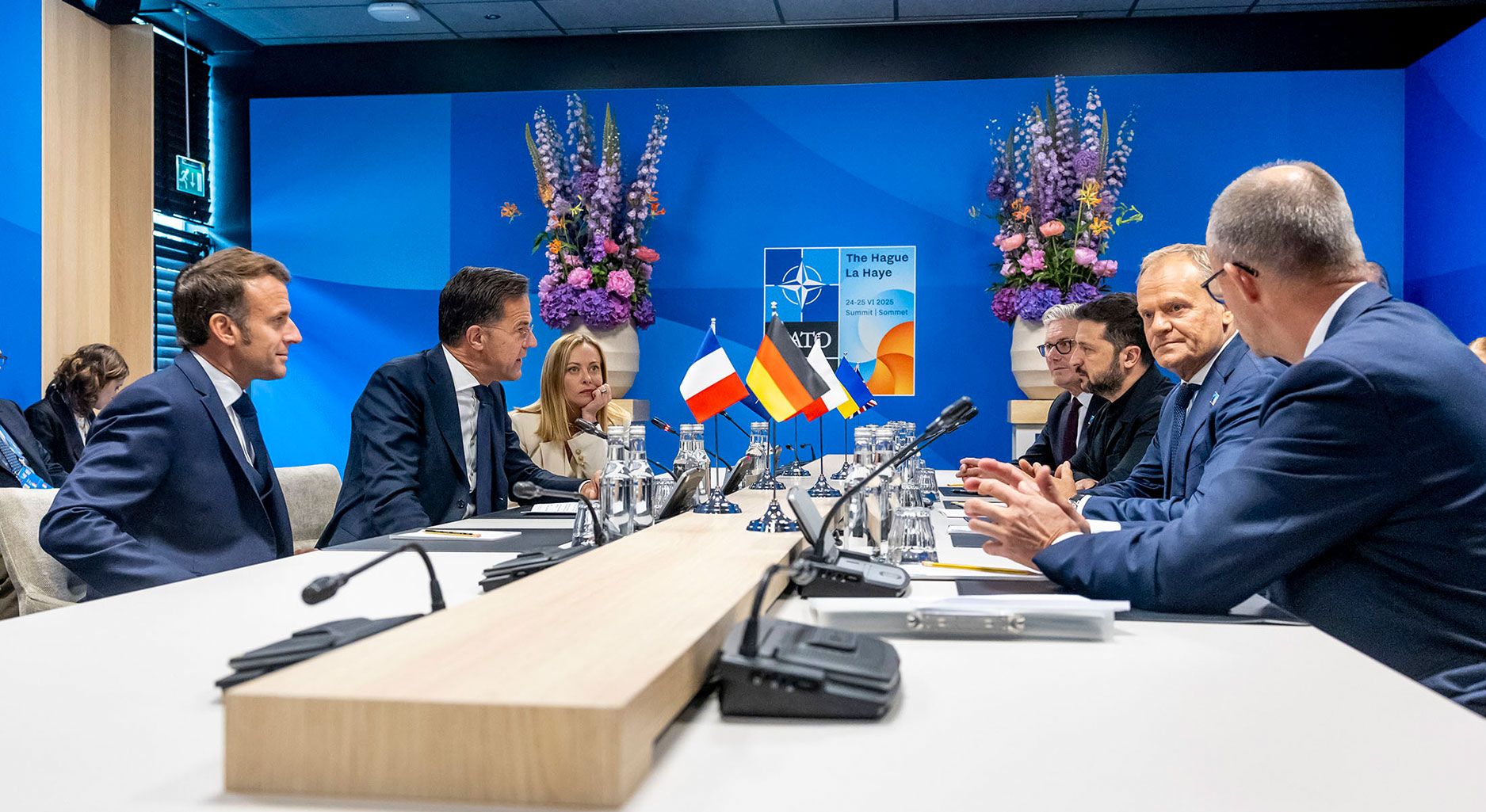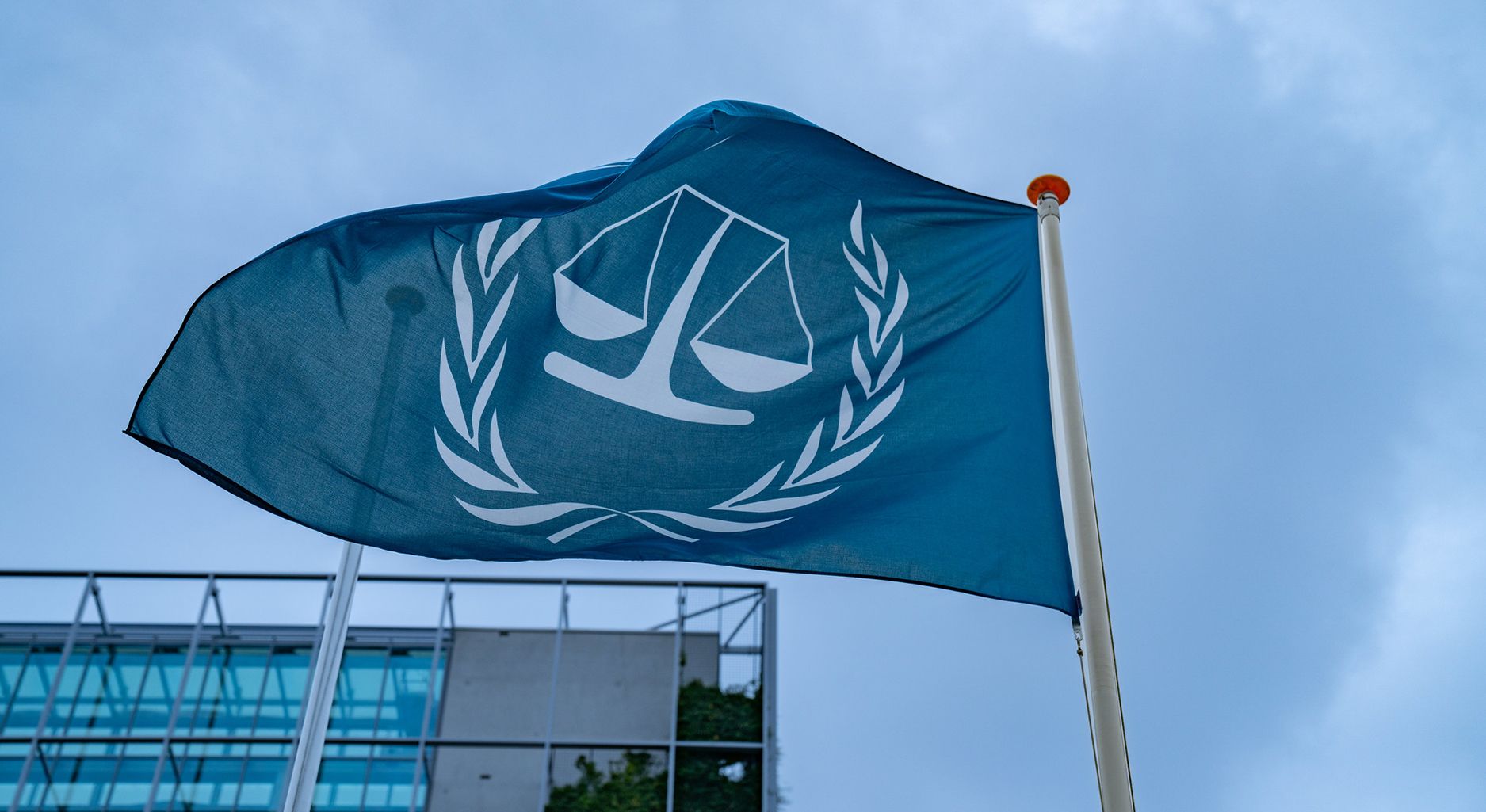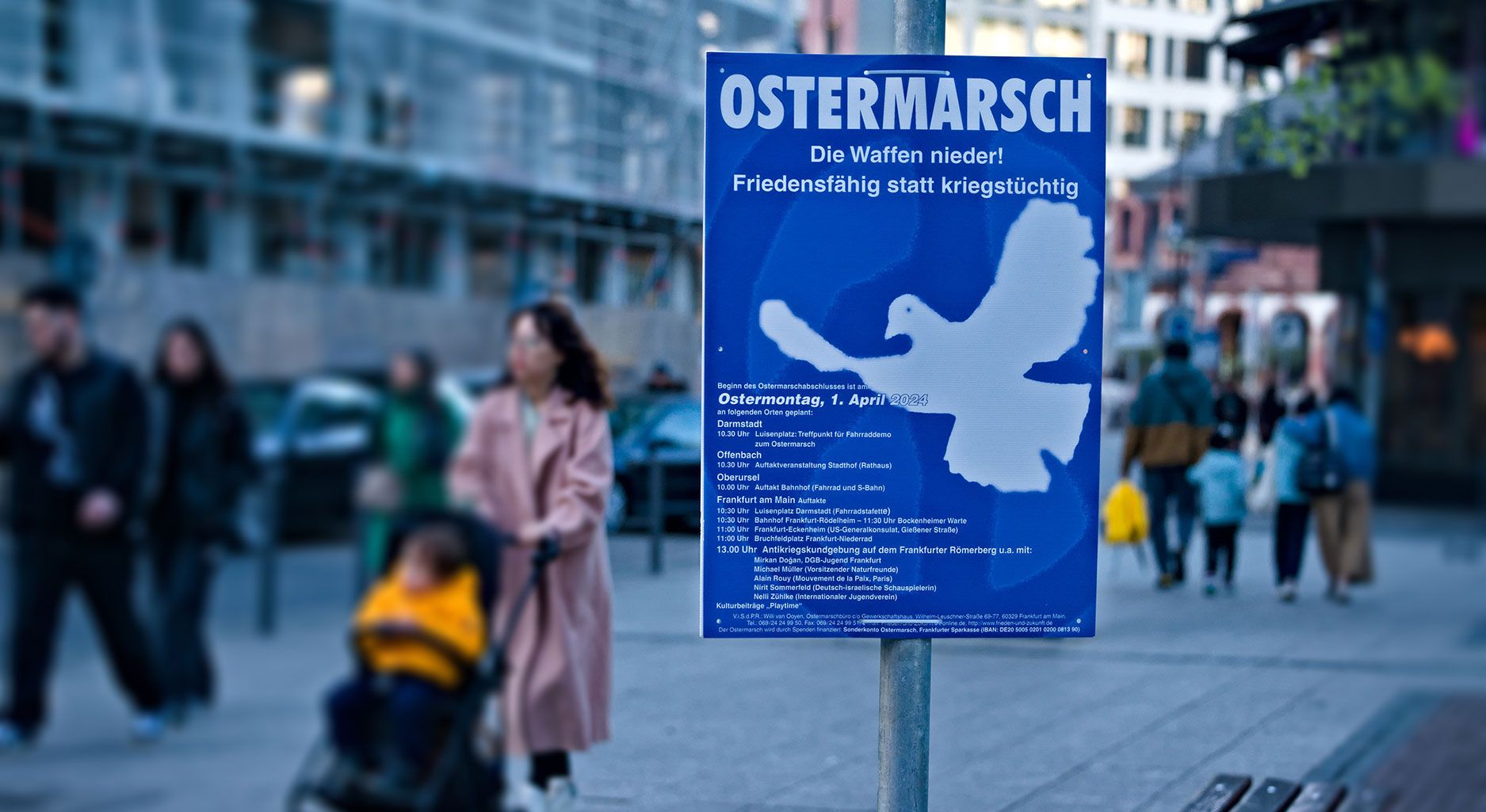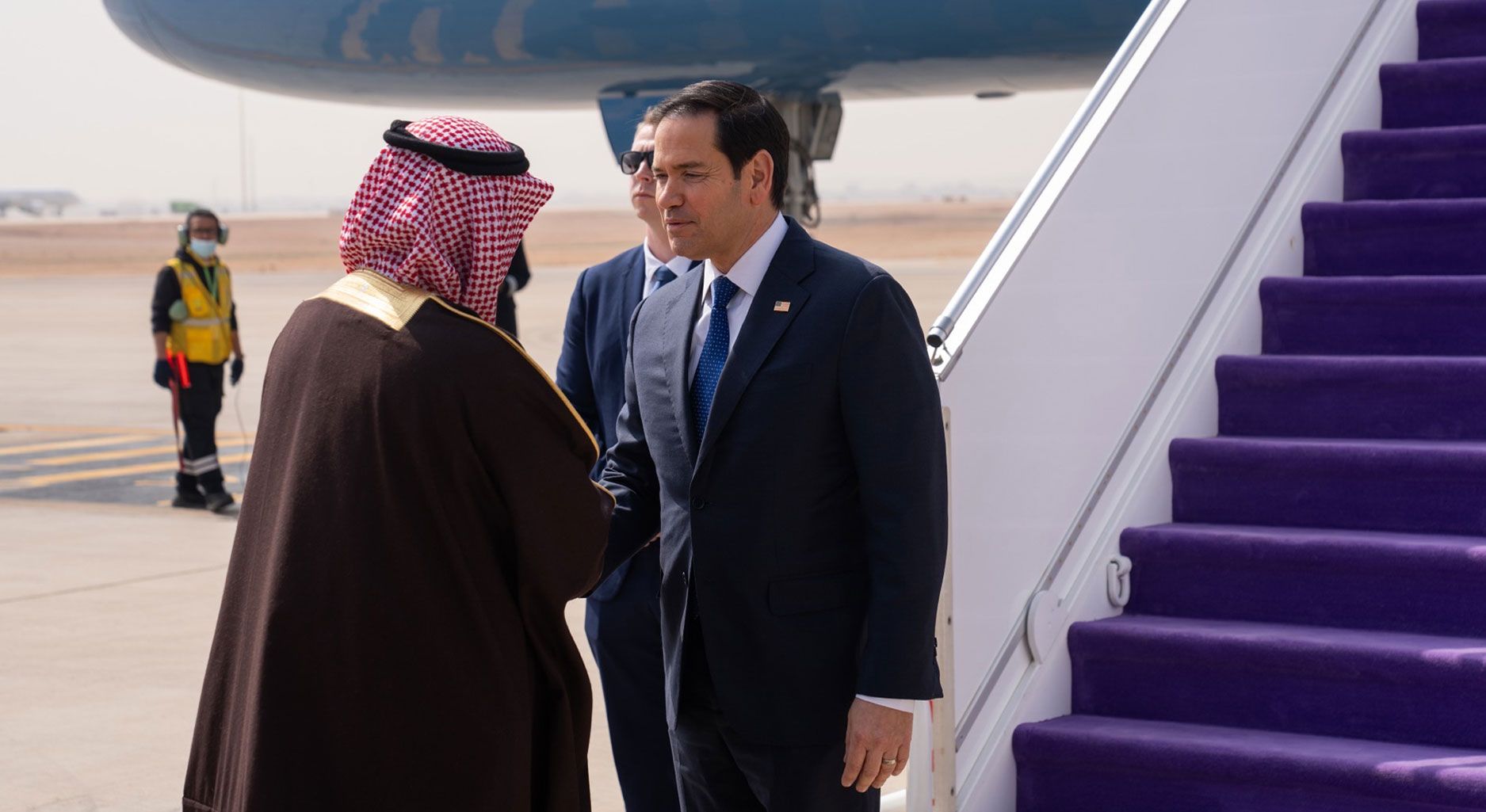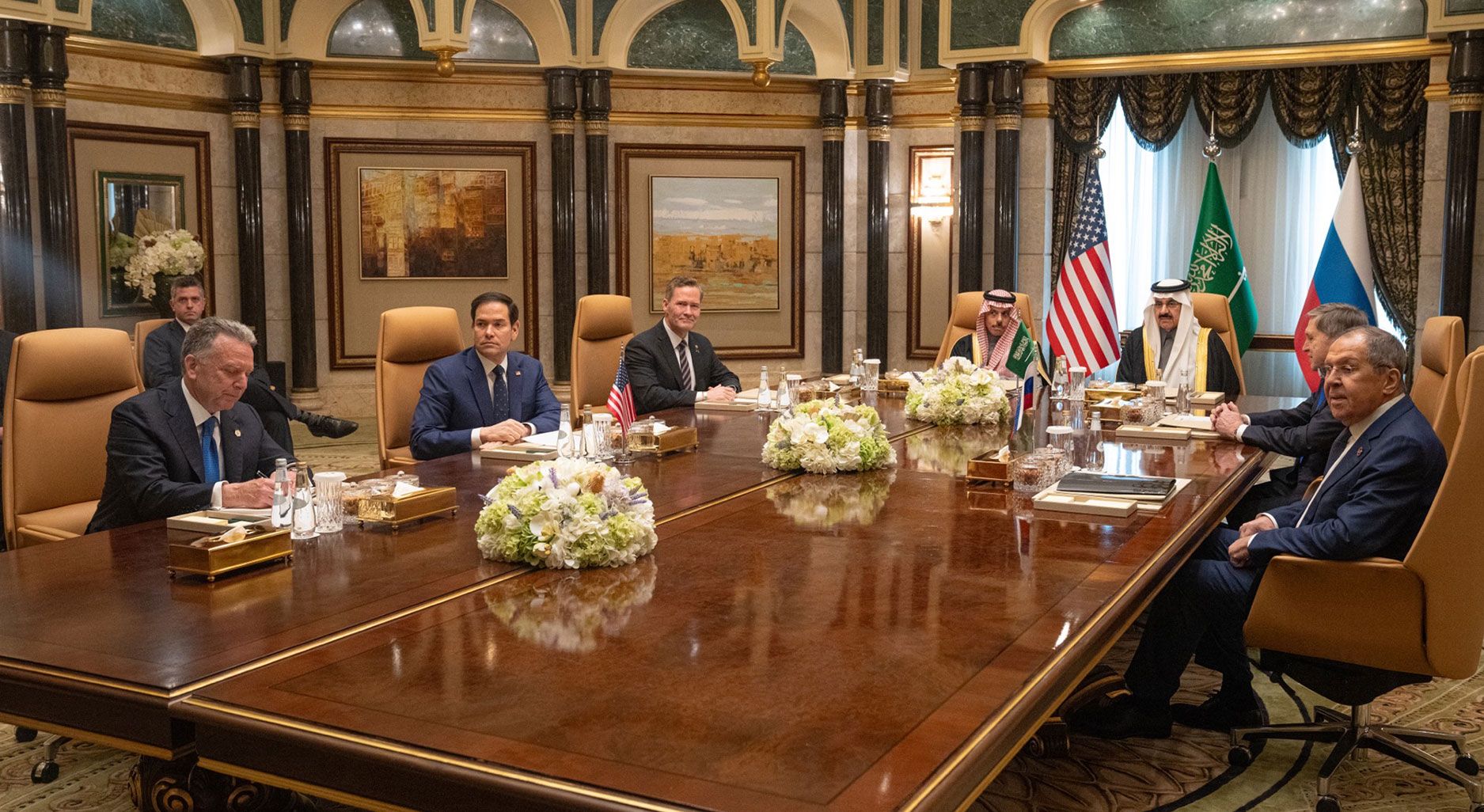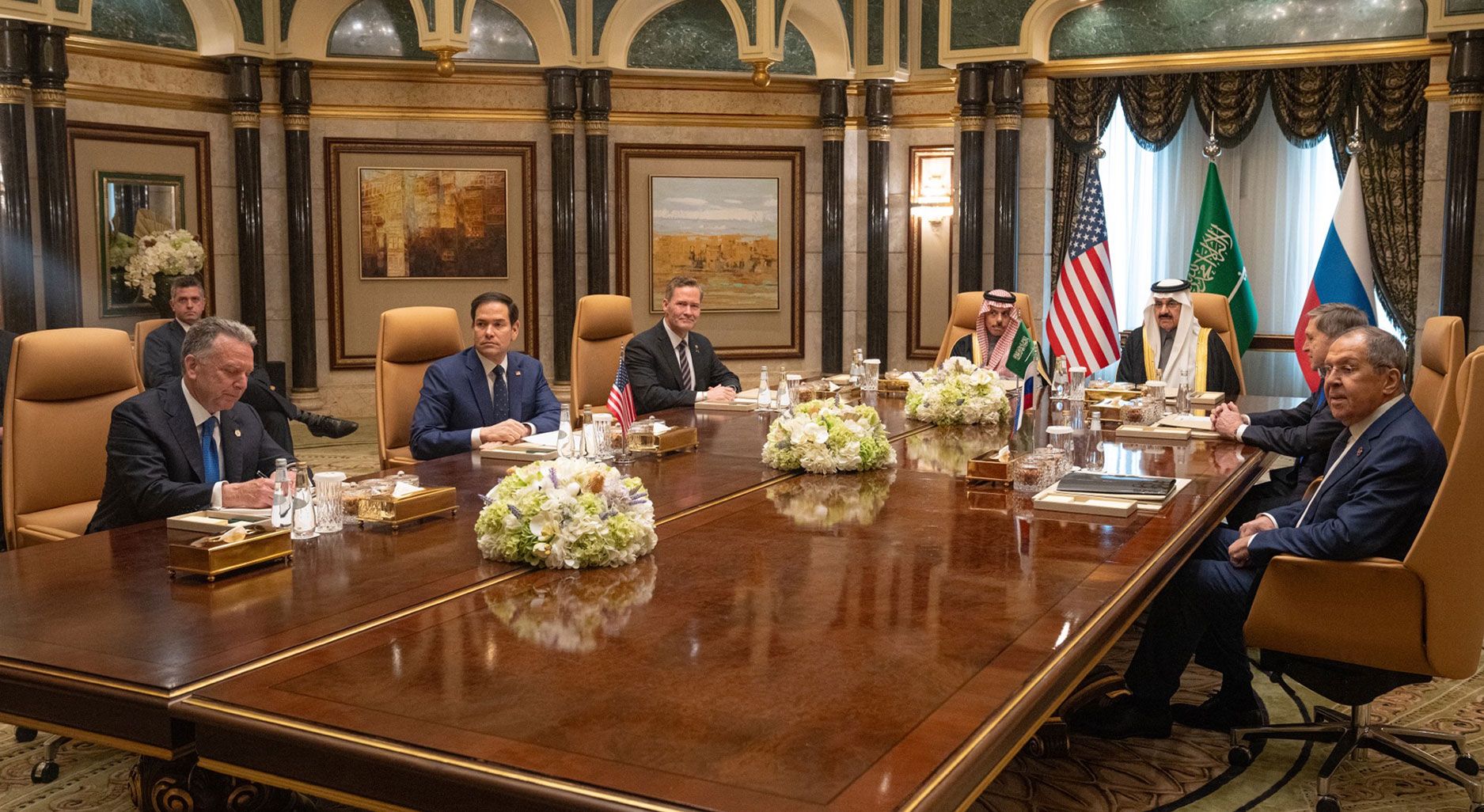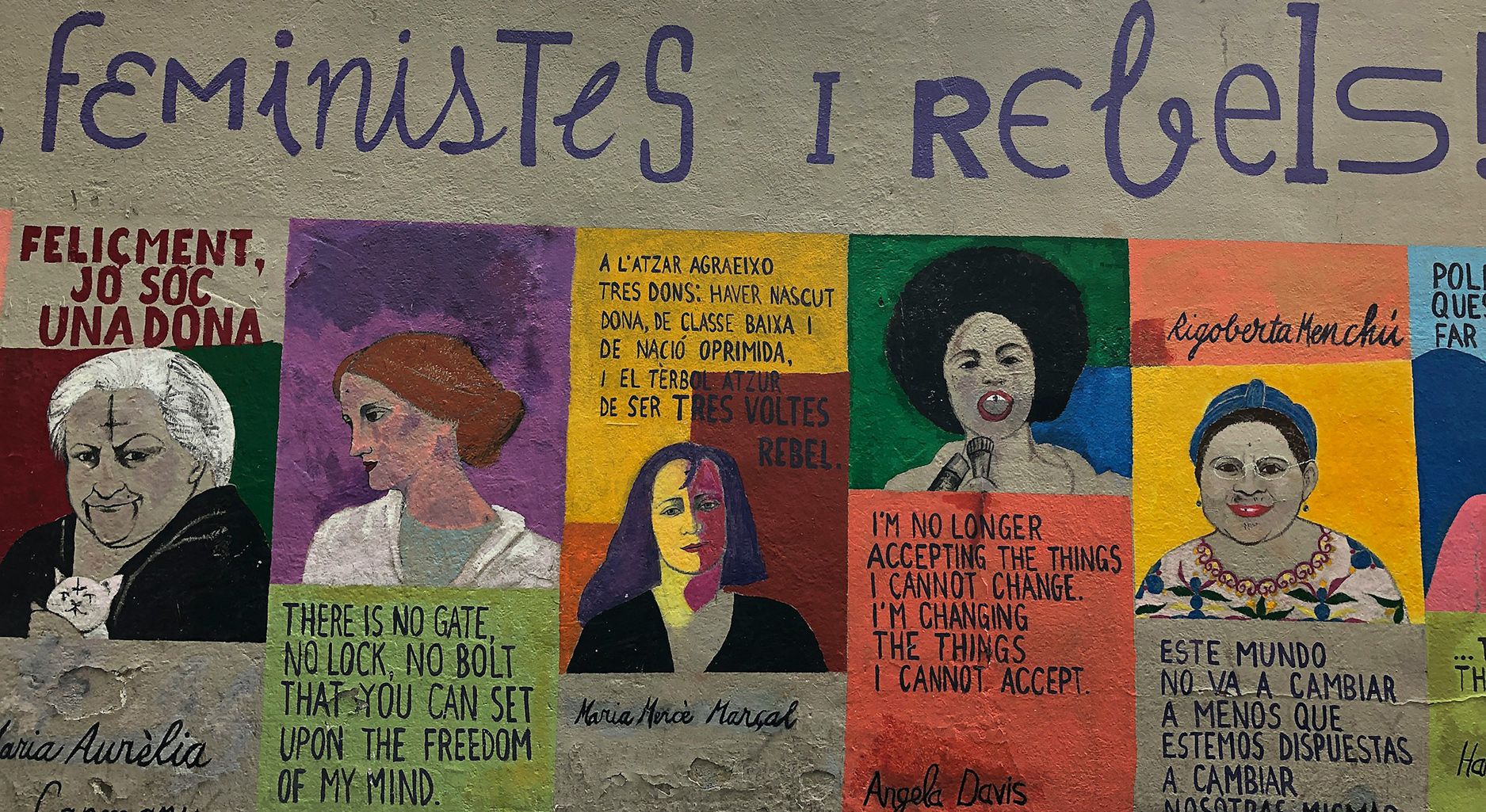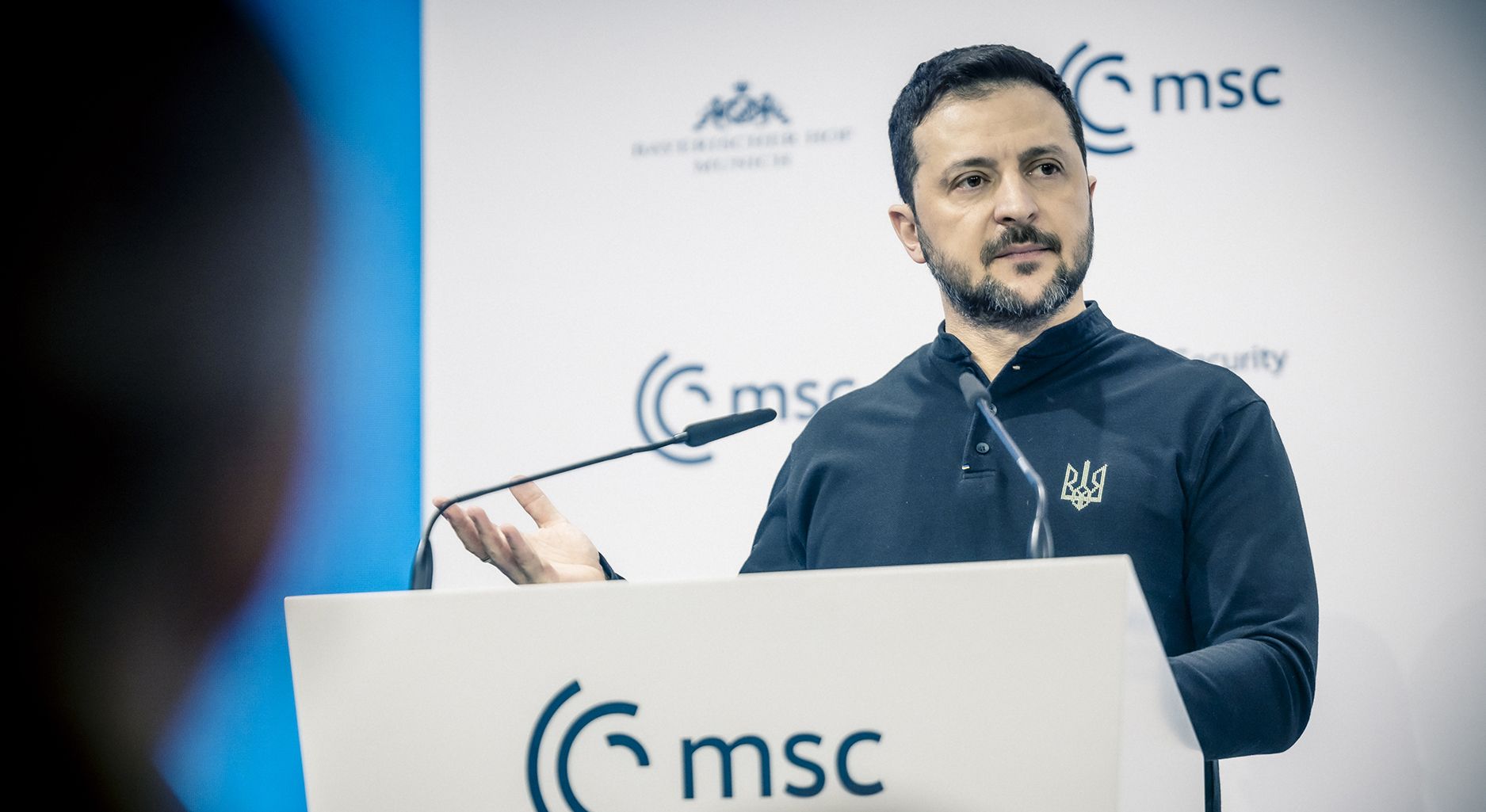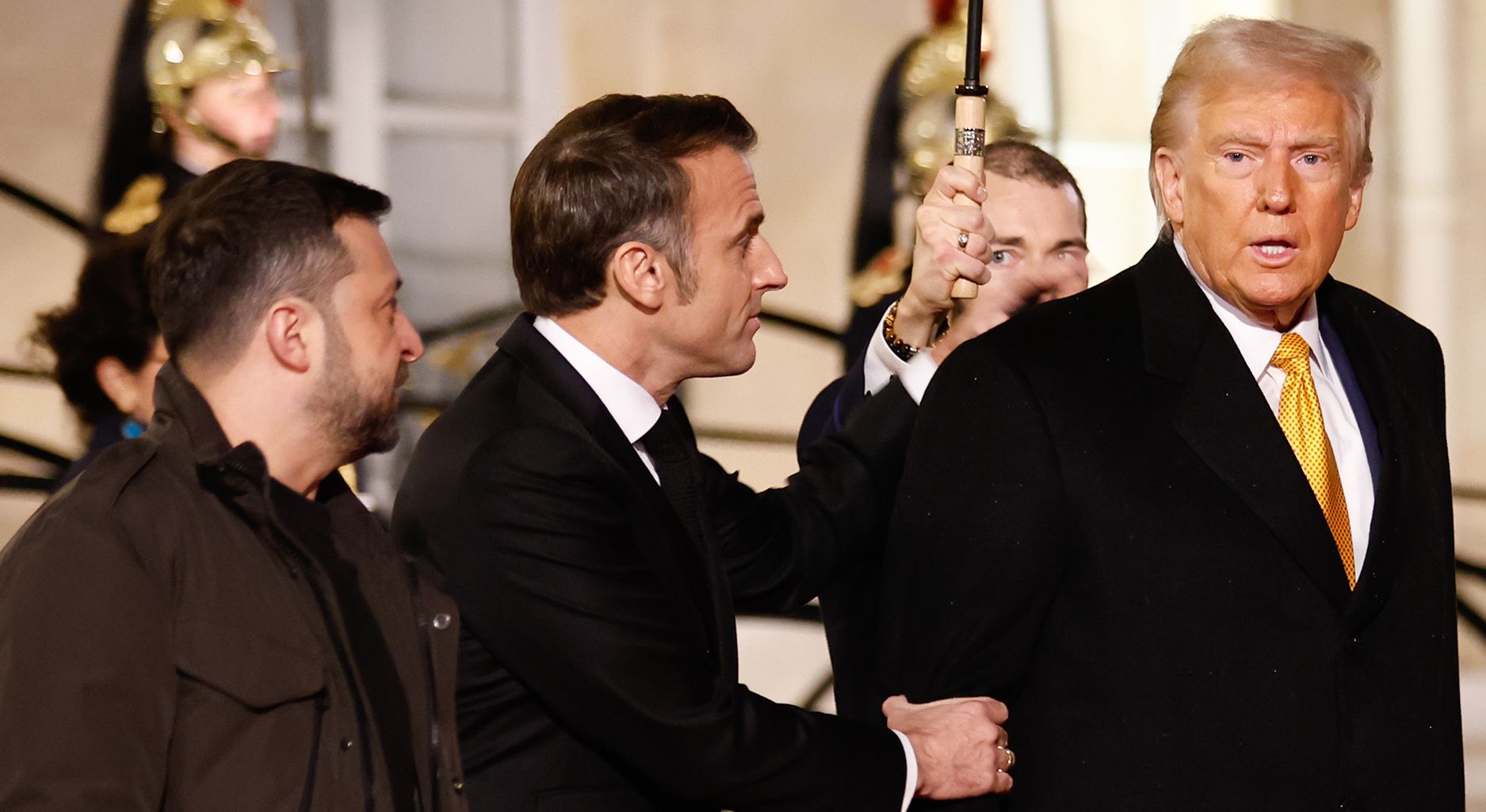Schlagwort: Ukraine
Geht es um Kriege außerhalb Europas, tritt Deutschland für Diplomatie und Verhandlungen ein. Findet der Krieg aber auf dem eigenen Kontinent statt, gelten Verhandlungen mit dem Gegner als unmöglich oder als Konzession gegenüber Kriegsverbrechern. Die sicherheitspolitische Debatte derart zu verengen, blendet jedoch gelungene Risikoreduzierung und diplomatische Erfolge wie z. B. das Getreideabkommen, die Monitoring-Missionen der IAEA oder den wiederholten Austausch von Gefangenen aus. Dieser Beitrag argumentiert, dass neben gesteigertem militärischem Druck und Sanktionen, auch positive Anreize helfen könnten, um den Krieg zum Vorteil Europas und der Ukraine zu beeinflussen und skizziert, wie diese aussehen könnten.
Justice for Ukraine: The Case for a Special Tribunal on the Crime of Aggression
On May 9th, 2025, an international coalition of almost 40 states, senior legal experts of the European Commission, the European External Action Service, the Council of Europe, and Ukraine, together officially endorsed the creation of a Special Tribunal for the Crime of Aggression against Ukraine. This represents a significant step toward holding Russia accountable for its illegal war and violations of international law. This blog post seeks to examine in greater detail the development, structure, and prospective functioning of the Tribunal, while situating it within the broader framework of international law. In parallel, it aims to formulate policy recommendations whereby Germany might continue its active support for Ukraine in the legal domain and reaffirm its commitment to upholding the rules-based international order.
Verrennen sich die Ostermärsche?
Auch dieses Jahr finden in vielen Orten Deutschlands Ostermärsche statt. Die Aufrufe thematisieren vor allem den Krieg gegen die Ukraine, das Blutvergießen in Gaza nach dem Angriff der Hamas auf Israel, das massive Aufrüsten der Bundesrepublik und anderer NATO-Staaten sowie die Stationierung von Mittelstreckenwaffen. Es zeigen sich erhebliche Unterschiede zwischen den Aufrufen, doch wie auffällt, tun sich viele schwer mit Kritik an Russland, während sie Israel massive Vorwürfe machen.
Russlands heikles Spiel mit der Zeit
Putin will den Konflikt mit der Ukraine nicht ernsthaft lösen. Aber er hält die Friedensverhandlungen am Laufen, weil sie ihm drei wichtige Vorteile bringen, meint Mikhail Polianskii.
A Sober Perspective for the Negotiating Table: Europe Must Contribute Diplomatically to Ending the War in Ukraine and Shape the Withdrawal of the US
Despite the deadlocked military situation for Ukraine and the policy shift in the US, Germany and Europe still lack a negotiating strategy for a diplomatic solution. But only military support for Ukraine and sanctions against Russia are not going to end the war on the most favorable terms for Kyiv. As difficult as it may be, positive offers equally needed. Europe’s confrontation with President Trump’s diplomatic efforts will also not help to achieve more European sovereignty. Rather, we will have to negotiate with him and President Putin about the future of Ukraine and our own security architecture. Instead of panicking and investing solely in the military, European governments should therefore pull themselves together and, above all, seize the diplomatic opportunity to secure their fate.
Mit nüchternem Blick zum Verhandlungstisch: Europa muss die Beendigung des Ukrainekrieges und den Rückzug der USA diplomatisch mitgestalten
Trotz der längst verfahrenen militärischen Lage für die Ukraine und bekannten Kurswechsels in den USA hielten Deutschland und Europa an der unrealistischen Strategie fest, nur mit militärischer Unterstützung und Sanktionen eine Verhaltensänderung Moskaus zu erreichen. Damit allein lässt sich der Krieg nicht zu möglichst günstigen Bedingungen für Kyjiw beenden. Die europäische Passivität gegenüber dem diplomatischen Ansatz von Präsident Trump wird auch nicht helfen, mehr europäische Souveränität zu erlangen. Vielmehr wird die Zukunft der Ukraine und unsere eigene Sicherheitsarchitektur mit ihm und auch mit Präsident Putin ausgehandelt werden müssen. Statt panisch nur ins Militär zu investieren, sollten sich die europäischen Regierungen ausnüchtern und diplomatisch rüsten, ihr Schicksal in die Hand zu nehmen.
US Halts Defensive Cyber Activities Against Russia: A Digital ‘Withdrawal’ from Europe
In a major shift in U.S. cybersecurity policy, Defense Secretary Pete Hegseth has ordered U.S. Cyber Command to halt all planning against Russia, including offensive cyber operations. This policy change, made behind closed doors, represents a significant reversal of the approach taken under the Biden administration, which had identified Russia and China as the most significant intelligence threats to the United States. The decision aligns with the broader foreign policy direction of the Trump administration, which aims to “de-escalate” tensions with Russia, though it seems to be more of an appeasement. And this policy shift obviously comes at the expense of national and allied security, as has become frighteningly clear in recent days with the example of the – one can hardly call it anything else – ‘blackmail’ of Ukraine, which was temporarily denied military and intelligence support by the US.
On International Women’s Day: Feminist Peace Perspectives for Ukraine
February 24 marked the third anniversary of Russia’s war of aggression against Ukraine. Various options for peace are being debated internationally, often without focusing on Ukrainian perspectives and interests. On the occasion of International Women’s Day, PRIF researcher Clara Perras conducted a written Interview with Olena Zinenko, a Ukrainian feminist peace activist and researcher from Kharkiv who currently lives and works in Bochum. She is lecturer at Karazin Kharkiv National University (online), guest researcher in IFHV Ruhr University Bochum and project coordinator at KRF “Public Alternative”.
From Munich to Munich? Three Years of Russia’s Full-Scale Invasion of Ukraine
Three years ago, in Ukraine, I was awoken at 4:45 am by a frightening noise unlike anything I had ever heard. I stared into the darkness behind the window and told myself: it’s not true, it’s not a war, it’s just military exercises. Yet the nightmare of Russia’s full-scale military invasion was real and continues to this day. Since then, Ukrainians have been standing, fighting, and defending themselves, resisting not only Russia but also prophesies of disaster and efforts to undermine support for Kyiv. Despite this, the Ukrainian army still stands and it holds the key to the future.
How a Sustainable Ceasefire Between Russia and Ukraine Could be Reached
The Trump administration’s recent actions have left many uncertain about the prospects and trajectory of the Russo-Ukrainian war. False certainties and anxious interpretations abound. However, some clear tendencies have emerged from Trump’s first few months in office as well as from his last term. Europe’s leaders, while trapped between Trump’s geopolitical flailing, Putin’s ongoing war efforts, and a continent-wide surge in nationalist sentiments, have options at their disposal that could significantly shape upcoming decisions. A lot is at stake, and the time to act is now.
